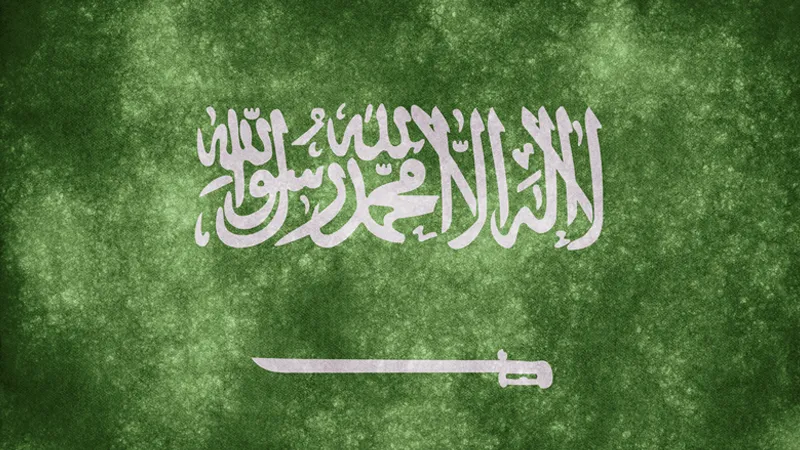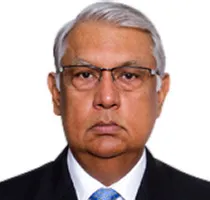-
CENTRES
Progammes & Centres
Location

Last Saturday, the Saudi Arabian government announced officially that it had executed 47 convicts < class="aBn" tabindex="0" data-term="goog_239134175">< class="aQJ">in one day, setting a gruesome record of sorts in the 21st century.
Except for two, an Egyptian and a Chadian, the rest were all Saudis.
The government claimed to have executed convicts accused of terrorism by beheading and firing squad, inside various prisons across the country, and not publicly, as is the norm in this ultra-conservative kingdom which upholds and implements the strictest version of Wahhabi Islam.
The minister of the interior released a statement following the executions and quoted the Quran: "The recompense of those who wage war against Allah and His Messenger and do mischief in the land is only that they shall be killed or crucified or their hands and their feet be cut off from opposite sides, or be exiled from the land."
The Saudi regime chose to kill and not maim. Among those executed was the well-known dissident Saudi Shia Cleric Sheikh Nimr Al-Nimr. Three other Shia leaders were executed. The rest were all Sunnis.
The Shia leader had repeatedly challenged the Saudi royal family and was convicted of inciting sectarian strife, sedition and other charges after his arrest in 2012.
Saudi oil wealth is located in the eastern province, where a 2 million strong minority Shia population lives. Saudi Shias have long complained of discrimination and harassment by authorities, who suspect them of divided loyalties in the context of the kingdom's rivalry with Iran, the predominant Shia power in the region.
The 2011 demonstrations by Shias, as part of the so-called "Arab Spring" movement that swept across the Arab world, had made the Saudi regime jittery.
The IS continues to justify all its actions as being in conformity with Islamic injunctions, very similar to the Saudi regime's statement on executions.
Citing a foreign ministry spokesman, Press TV announced: "The execution of a personality such as Sheikh Nimr, who had no means other than speech to pursue his political and religious objectives, only shows the depth of imprudence and irresponsibility."
Iranian protestors gathered outside the Saudi Embassy in Tehran, and some entered the Embassy, destroyed furniture and equipment and set fire to a few rooms. The Saudi Consulate at Mashad was also damaged, and the Saudi flag burnt. No one was injured. The Iranian government has called for calm and dispersed the protestors, even arresting a few.
The tit-for-tat Saudi reaction has been predictable. It declared that it had summoned the Iranian ambassador to the kingdom and handed over a strongly-worded protest note. The Saudis have warned Iran not to interfere in the kingdom's internal affairs. This rhetorical war has led to Saudi Arabia breaking off diplomatic relations with Iran.
Both countries justify their actions by quoting the Quran. Incidentally, Iran executes more people than Saudi Arabia, and Iranian accusations are a case of the pot calling the kettle black.
The US has called for diplomatic engagement and continuing talks. But no one is listening in an atmosphere vitiated by sectarian hate.
Earlier, the US had issued a weak statement calling upon the kingdom to respect human rights and peaceful dissenters.
Human rights organisations have criticised the charges brought against Al-Nimr as vague, and alleged that the Saudi regime was basically targetting its Shia population, to crush any signs of dissent.
These actions are likely to lead to complications in the Iraq-Saudi relationship, as the former is also a Shia majority country. Demonstrators have demanded the closure of the Saudi Embassy in Baghdad. Iraqi Prime Minister Haider al-Abadi has also condemned the executions.
UN Secretary General Ban Ki-moon's office said he was "deeply dismayed" by the executions. He called on leaders in the region to prevent an escalation of sectarian tensions.
It is impotent statements like this that have led to its growing irrelevance. Everybody ignores it, even as international security has hit rock bottom.
Saudi neighbour and ally Bahrain, a Shia-majority country ruled by a Sunni family, has officially supported the executions. Bahrain struggled with internal dissent during the "Arab Spring" wave, and Saudi Arabia had helped the ruling family quell the revolt.
In Saudi itself, Shias have marched in protest at Al-Nimr's execution. There have been protests across the Islamic world and even in India, particularly in Jammu and Kashmir.
With the world's second largest oil reserves, they control 20% of the world's oil. This natural endowment has made the kingdom one of the richest countries in the world. Authoritarian to the core, the kingdom has the most regressive laws in the world, which mete out harsh treatment to women and mistreat the millions of foreign workers who are employed there. Frequent cases of Indian workers being beaten and humiliated have surfaced with nauseating regularity.
King Salman, who assumed power after the death of King Abdullah in January last year, has handpicked younger and brash princes to exercise power. They have unleashed a brutal bombing campaign on southern neighbor Yemen, one of the poorest countries in the world.
Yet, Saudi Arabia enjoys extremely close and warm relations with the US, the world's oldest democracy, for whom the kingdom has served a useful purpose - a never-ending gas station. For this service, the US which does not hesitate to dish out sermons to the world's largest democracy on tolerance and human rights, maintains a cozy relationship with the Al Saud family, oblivious to the blatant and despicable human rights abuses of this close ally.
The USA has loyally supported the vicious Saudi campaign in Yemen, which has caused untold suffering among poor Yemeni civilians. The US clearly believes in standing by its allies regardless of their complicity in human rights abuses and terrorism. This is also evident in the case of Pakistan. The imperatives of geo-politics and energy security can make strange bedfellows.
This article originally appeared in Catch News.
The views expressed above belong to the author(s). ORF research and analyses now available on Telegram! Click here to access our curated content — blogs, longforms and interviews.

Pinak Chakravarty was a Visiting Fellow with ORF's Regional Studies Initiative where he oversees the West Asia Initiative Bangladesh and selected ASEAN-related issues. He joined ...
Read More +